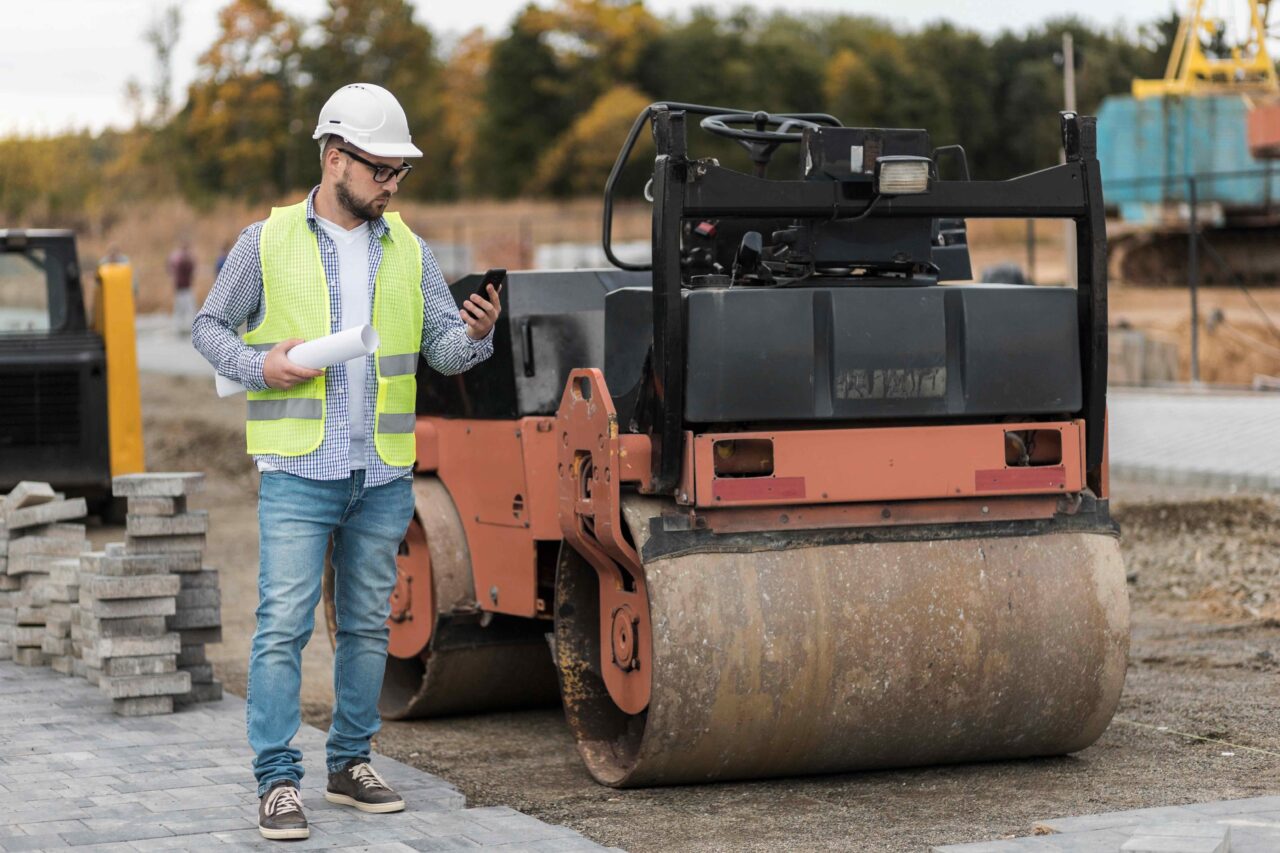A driveway is more than just an entryway; it’s a functional space that bears the weight of various vehicles, especially for heavy-duty trucks, RVs, or construction equipment. Choosing a suitable material is crucial, and reinforced concrete is a durable and resilient option. In this blog, we’ll explore the benefits, considerations, and steps involved in opting for reinforced concrete driveway paving, particularly for areas where heavy vehicles are standard.
Understanding the Need for Reinforcement
Heavy vehicles exert significant pressure on driveways, leading to wear and tear over time. Reinforced concrete is designed to withstand these immense loads, providing longevity and stability.
Benefits of Reinforced Concrete Driveways
Strength and Durability
Adding reinforcement, often in the form of steel bars or mesh, significantly enhances the strength of concrete. This ensures the driveway can endure heavy loads without cracking or deteriorating.
Load-Bearing Capacity
Reinforced concrete driveways have a high load-bearing capacity, making them suitable for heavy vehicles. This feature is essential for properties where trucks, trailers, or construction machinery are regularly present.
Resistance to Cracking
Heavy vehicles can lead to concentrated loads on the driveway surface, increasing the risk of cracks. Reinforced concrete minimizes this risk by distributing the load more evenly, preventing the formation of extensive cracks.
Low Maintenance
Compared to some other paving materials, reinforced concrete requires minimal maintenance. This is particularly beneficial for driveways subjected to heavy vehicle traffic, as regular maintenance can be inconvenient and costly.
Considerations for Reinforced Concrete Driveways
Proper Planning and Design
Adequate planning and design are crucial when considering a reinforced concrete driveway for heavy vehicles. Factors such as the type and amount of reinforcement, thickness of the concrete, and soil conditions should be carefully evaluated.
Professional Installation
Hiring experienced professionals for the installation is essential. Proper mixing, placement, and finishing are critical to ensure the concrete cures correctly and maximizes strength.
Joint Placement
Joints play a vital role in controlling cracking. A well-designed jointing system accommodates concrete’s natural expansion and contraction, preventing unsightly and potentially damaging cracks.
Surface Texture
A slightly textured surface can enhance traction for driveways subject to heavy vehicles. This is especially important in areas with potential exposure to water or ice.
Steps to Installing a Reinforced Concrete Driveway
Site Preparation
Clear the area of debris, excavate the soil, and ensure a stable base for the driveway.
Formwork Installation
Create the formwork that will define the shape of the driveway. This step is crucial for achieving a uniform thickness of the concrete.
Reinforcement Placement
Install the reinforcement – either steel bars or mesh – within the formwork. This reinforcement provides tensile strength to the concrete.
Concrete Mixing and Pouring
Mix the concrete according to specifications and pour it into the formwork, ensuring it reaches the desired thickness.
Finishing
Level and finish the surface of the concrete to achieve the desired texture and appearance.
Curing
Proper curing is essential for the concrete to reach its optimal strength. Keep the concrete moist and protected from extreme temperatures during the curing period.
Conclusion
A reinforced concrete driveway is an excellent choice for properties with heavy vehicles. Because of its strength, resilience, and ease of upkeep, it’s a dependable choice for ensuring your driveway can handle the rigors of regular usage by trucks, RVs, and other oversized vehicles. A reinforced concrete driveway combines durability with long-lasting beauty, offering a solid base for heavy-duty applications when correctly planned, built, and implemented.
Transform your home effortlessly with FloorPup! Discover our extensive range of hardwood flooring, receive tips from expert floor care and maintenance professionals. Our team includes professional floor fitters, skilled driveway pavers, and dependable carpet repair specialists, ensuring top-notch results. Learn more about our dedication to quality on our About Us page. Visit FloorPup and start enhancing your living space today!
FAQs: Reinforced Concrete Driveway Paving for Heavy Vehicles
Q1: Why choose reinforced concrete for a driveway with heavy vehicle traffic?
A: Reinforced concrete is an ideal choice for driveways with heavy vehicles due to its superior strength and load-bearing capacity. Adding reinforcement, typically steel bars or mesh, enhances its durability and resistance to cracking, ensuring longevity under heavy traffic conditions.
Q2: What is the significance of reinforcement in a concrete driveway for heavy vehicles?
A: Reinforcement in a concrete driveway provides tensile strength, preventing the formation of cracks under the concentrated loads imposed by heavy vehicles. This added strength ensures the driveway remains structurally sound, even with frequent and intense use.
Q3: How should I design a reinforced concrete driveway for heavy vehicles?
A: Proper planning involves assessing factors such as the type and amount of reinforcement, concrete thickness, and soil conditions. Professional assistance is crucial to ensure the driveway is designed to withstand the specific demands of heavy vehicle traffic.
Q4: Are there maintenance considerations for a reinforced concrete driveway in heavy traffic areas?
A: Reinforced concrete driveways require minimal maintenance, making them suitable for heavy traffic. However, it’s essential to monitor and address any surface issues promptly. Regular inspections, joint supervision, and surface repairs will contribute to the long-term durability of the driveway.


